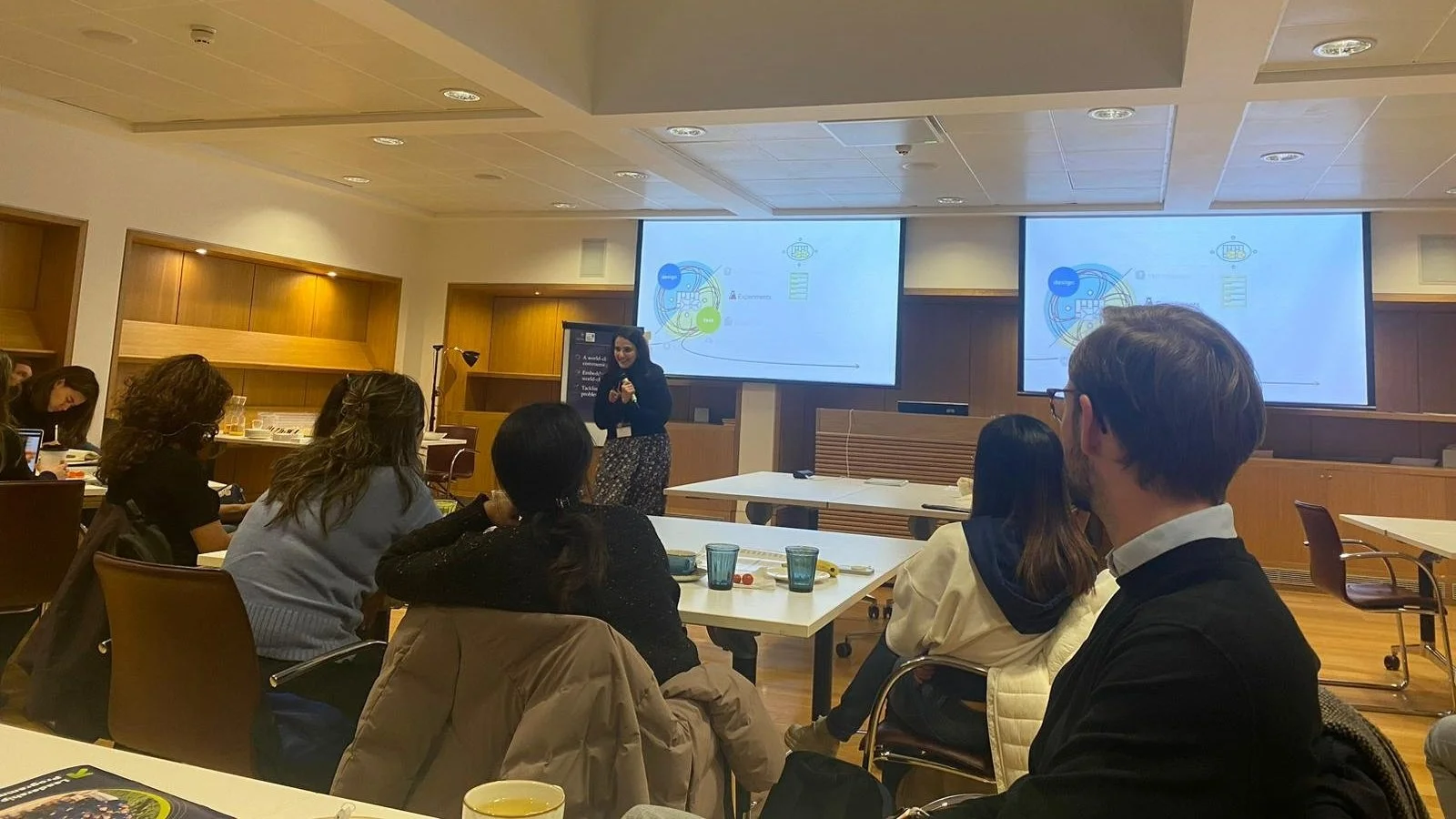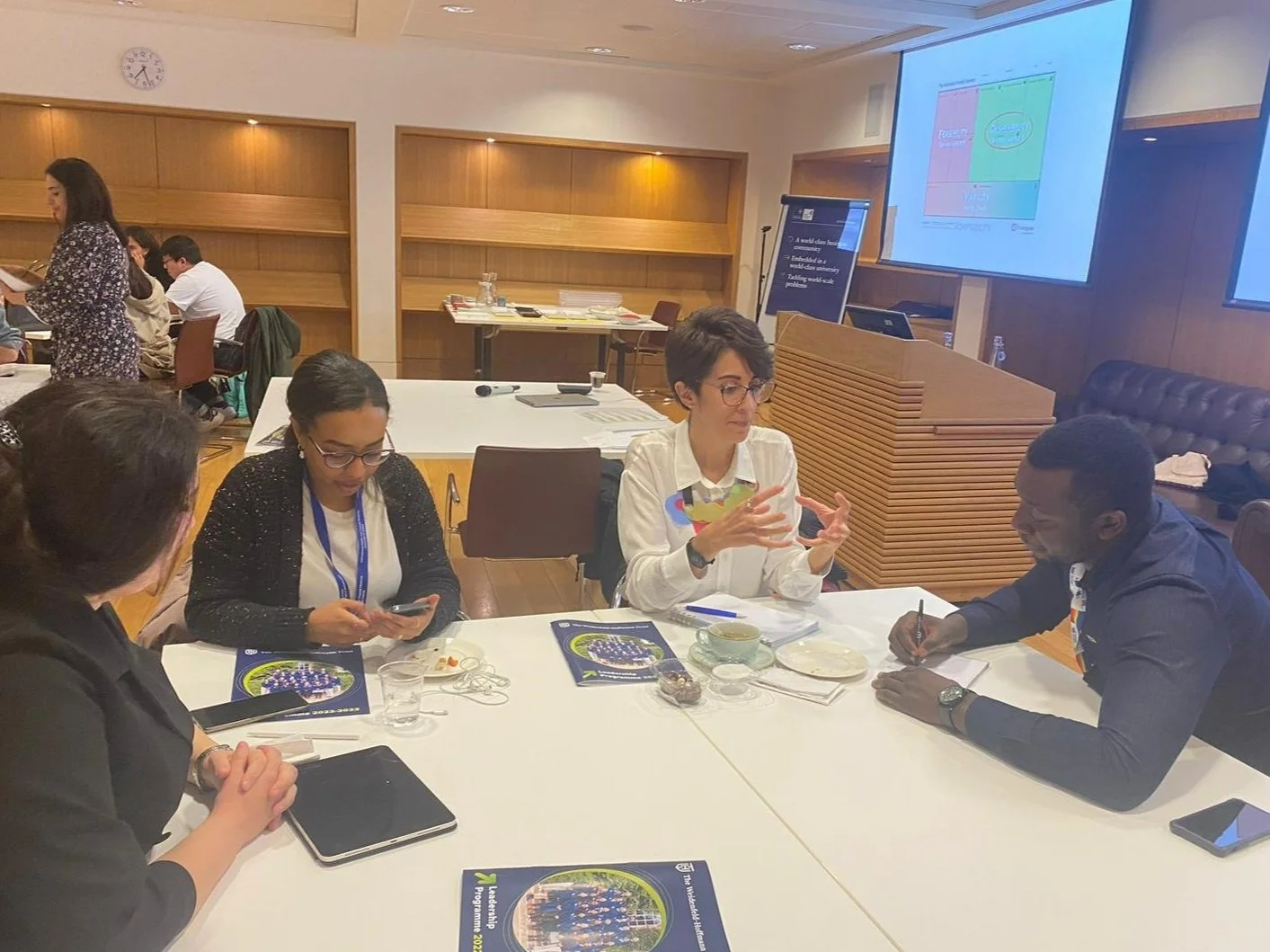WHT - Business Challenge Workshop
September 17, 2022 was a warm and sunny day at Worcester College. 33 scholars from 24 countries huddled up in a room as the WHT Enterprise Team laid down the foundation for the year’s Business Challenge. This was an opportunity for us to collaborate, build partnerships, learn various hard and soft skills from each other, and ultimately develop real-world businesses with a social impact. We began by identifying some of the biggest global challenges to achieving Sustainable Development Goals (SDGs), specifically Quality Education (SDG 4), Responsible Consumption and Production (SDG 12), and Climate Action (SDG 13). With 3 boards for each SDG and a bundle of post-it notes, we got to work. Intuitively and organically, we identified and established fundamental themes that emerged, and broke out into discussion rooms to debate and work over topics that interested us the most. By the end of the workshop, we had split into 8 teams with broad ideas of how our business would address fundamental socio-economic and ecological problems.
A month later, we had matriculated and officially become Oxford students enrolled with our respective colleges and departments, pursuing our many diverse fields of interest. Our classes had begun, but we stayed in touch, mulling over how to expand our ideas into feasible business models. As the weeks went on, we realised that although several of our ideas sounded great initially, they had several loopholes and gaps that would prevent them from scaling up and becoming feasible businesses.
And so we met on a cool evening on October 18. We wrapped up our classes for the day and arrived at Said Business School to move to the next step of the Enterprise Challenge with the Enterprise Team. The 2 hour fortnightly workshop was the first of a series of workshops to help us evolve, mould and solidify our ideas and propositions into feasible businesses. In order to do this, we were given frameworks and toolkits to work through bottlenecks in each of our business models. With snacks and food to fuel the conversation, we started with the basics:
1. Is it feasible - is the product or service inexpensive, scalable and replicable enough at its chosen scale to generate profits?
2. Is it viable - can the product or service be delivered with existing resources, technology and expertise?
3. Is it desirable - would users pay to use the product or service? Is it filling an existing void in the market? Is it addressing customer needs? Does the market need this product?
Once we answered these questions, the next step before us was to identify the hypotheses and assumptions that we were working with. Much like any nascent startup, we were all building our business on speculations, regarding desirability, demand and supply, our product’s space and role in the market, its unique offerings, its customer base, their purchasing power, etc. We huddled over more tea and coffee to identify the core assumptions we were working with, and to closely inspect the top 4 hypotheses that we would focus on to take our business ideas forward. This exercise helped us work through a lot of uncertainties and questions that were holding us back from moving to the next level.
In the coming weeks, all of the teams will connect with real-world professionals, policy makers, government officials, and experts to delve into the next steps of the business challenge.
Step 1: Building a minimum viable product, i.e. an early prototype that can be tested for feedback and further development with users and clients.
Step 2: Experiment the product and test its hypotheses with potential users, clients, and customers through focused group discussions, interviews, etc.
Step 3: Drawing evidence from the experiments to chart future course of action - do we proceed as planned, modify the idea, or drop it?
As the session wrapped up, we were left with this comforting piece of advice from the Enterprise Team - no business survives its first contact with its customers. We are now almost halfway through the Michaelmas term juggling all that Oxford has to offer, along with academic readings, seminars, and other social events. It’s fair to say that we’ve already started thinking and planning like entrepreneurs: fighting fires, embracing opportunities, collaborating across disciplines, allocating priorities, and setting our individual long-term goal that we want to work towards.




